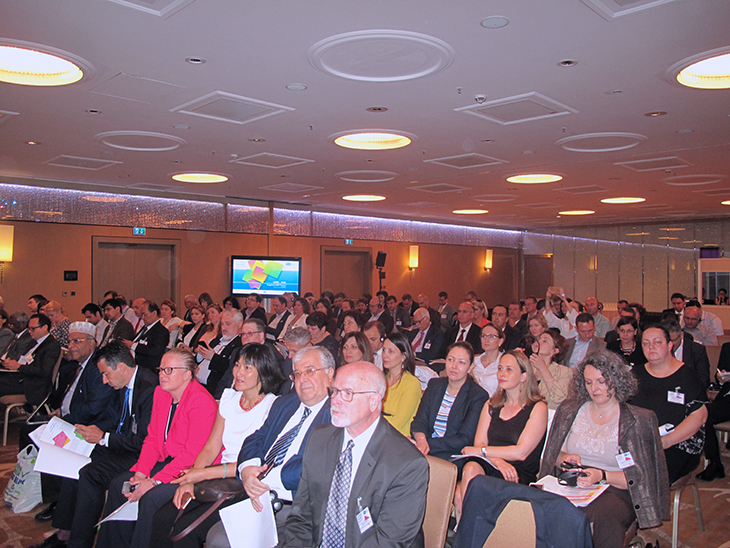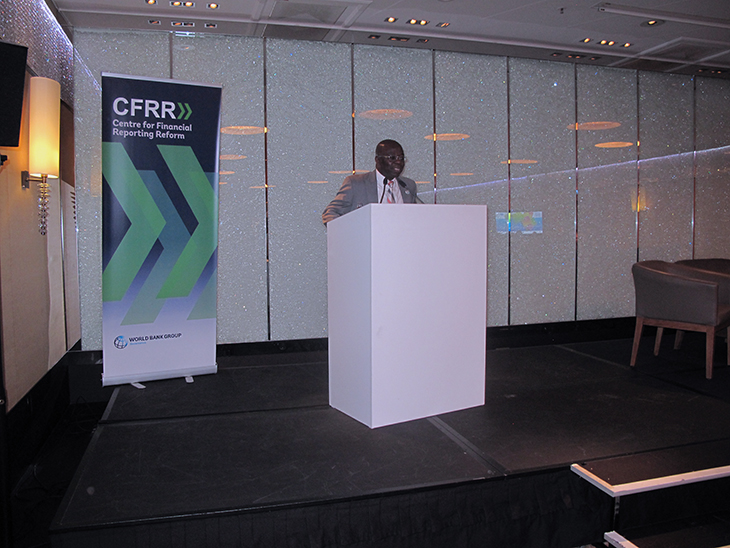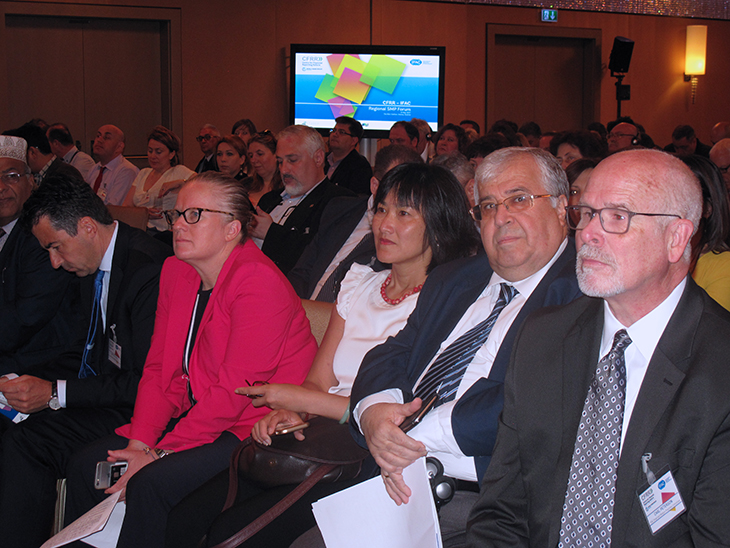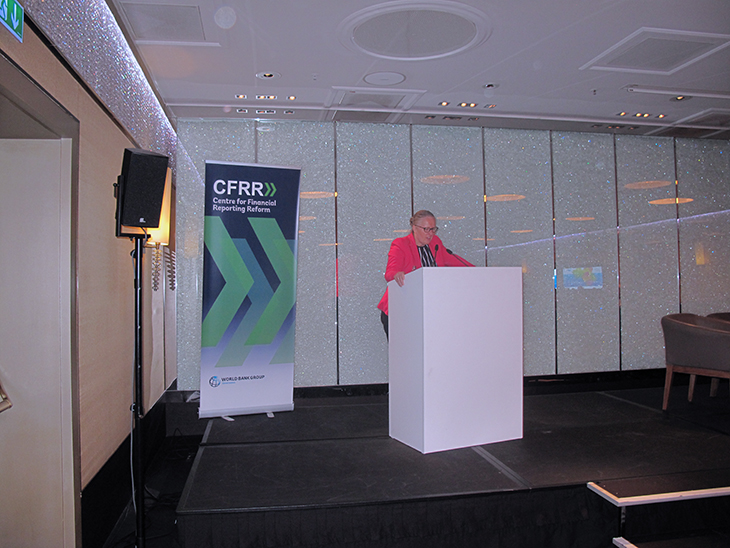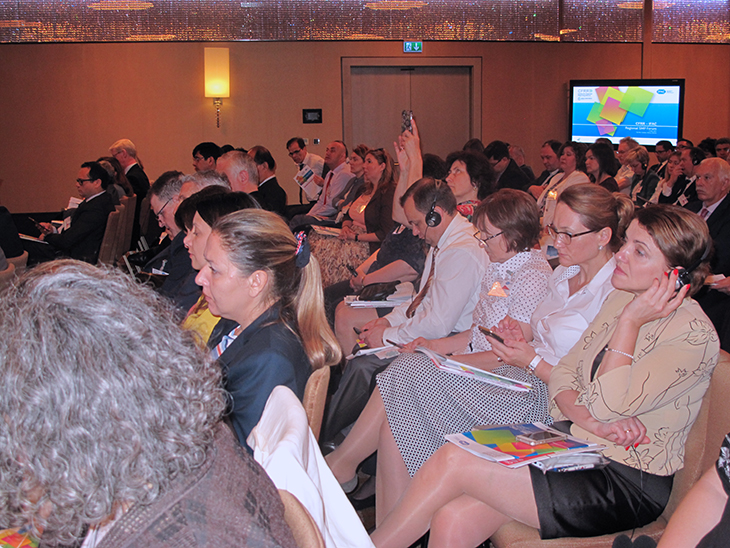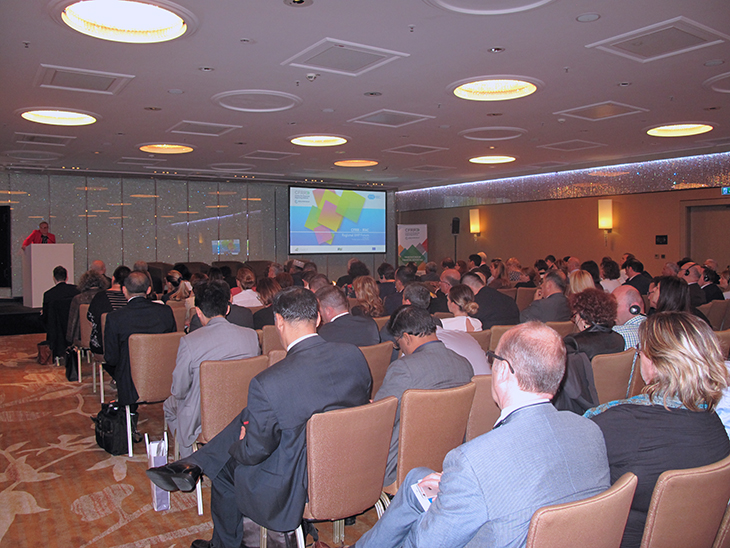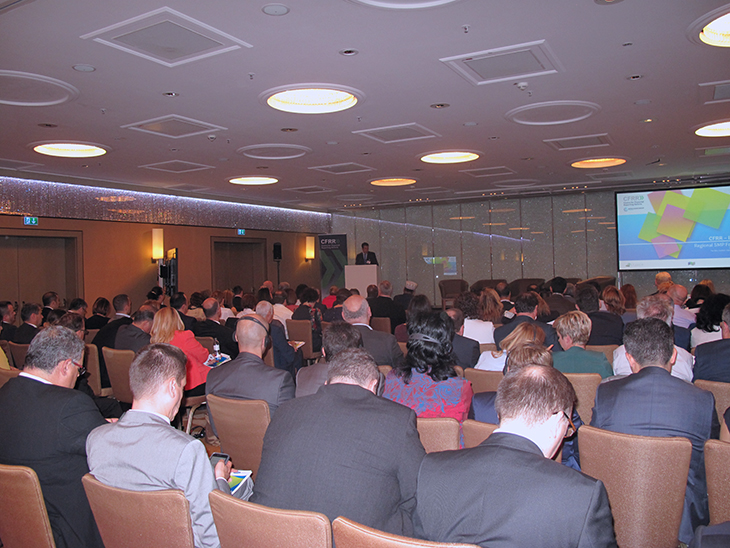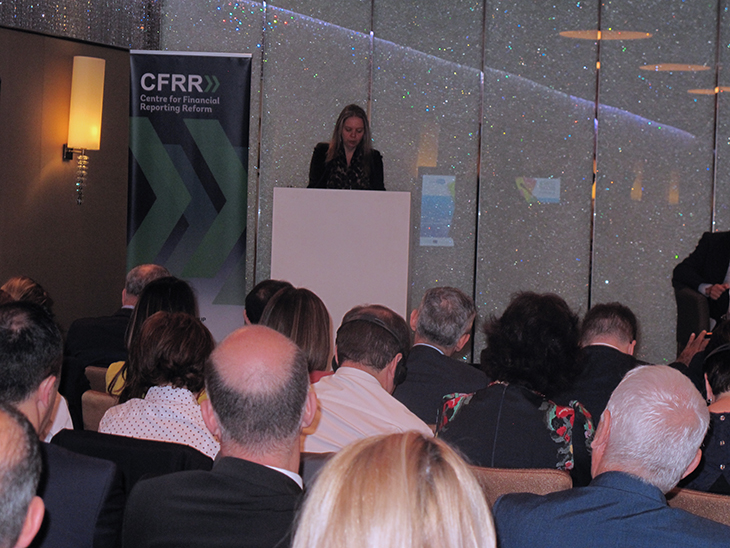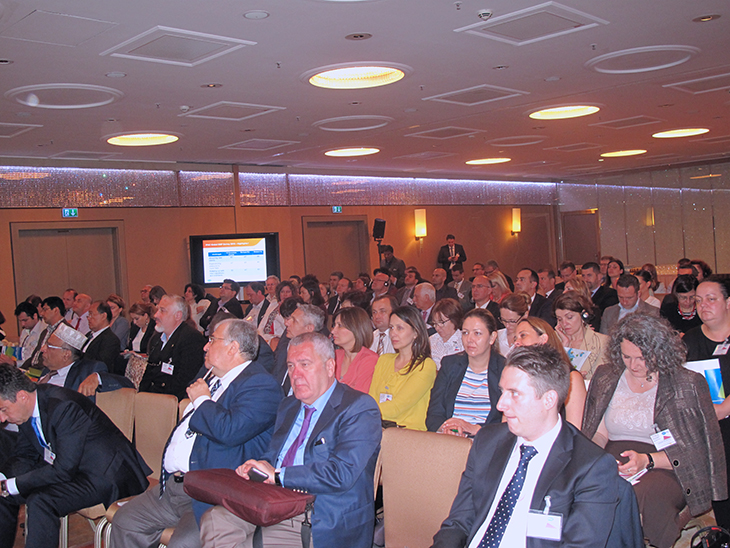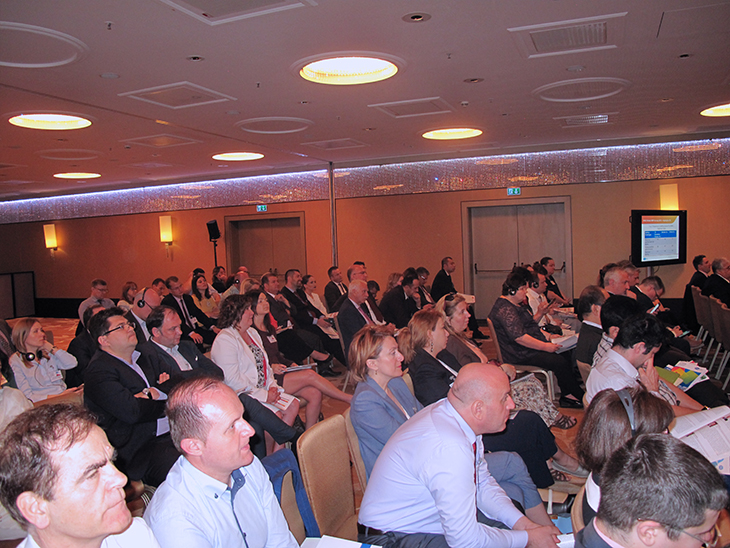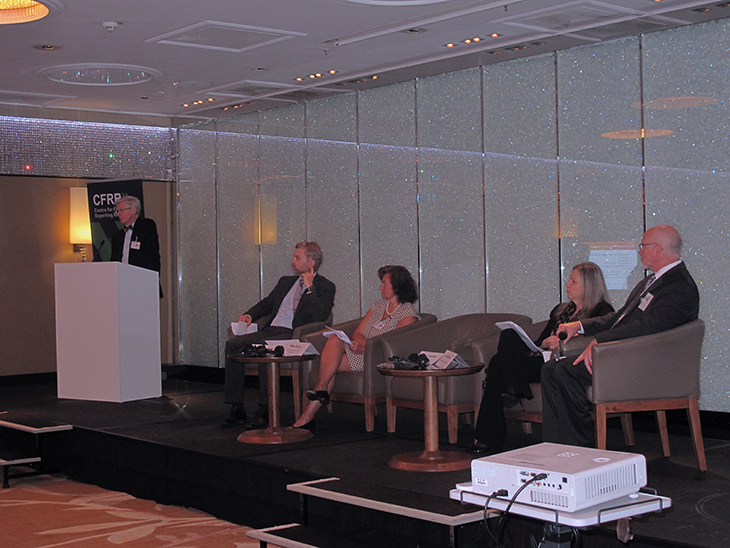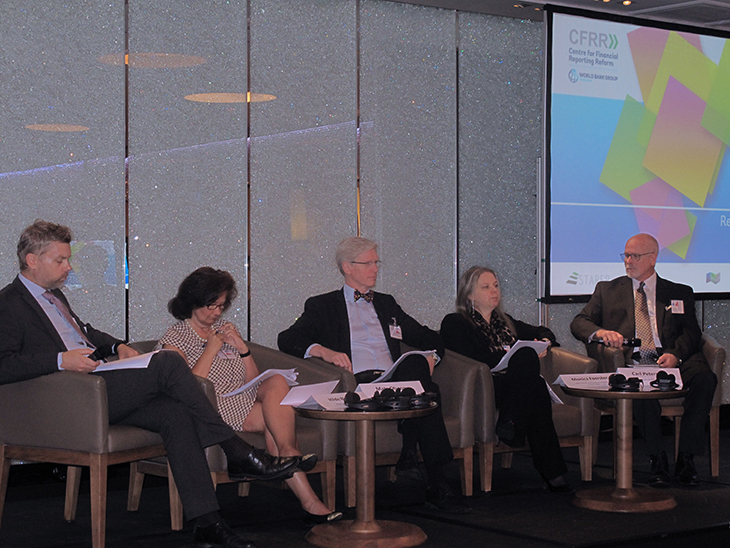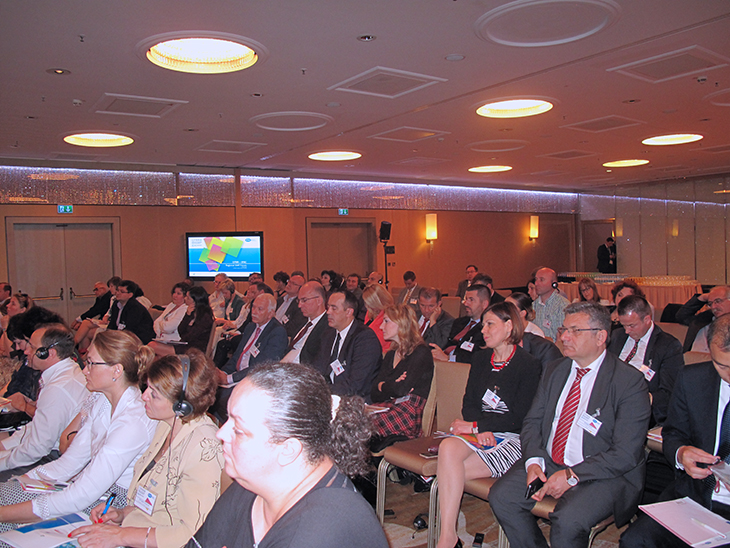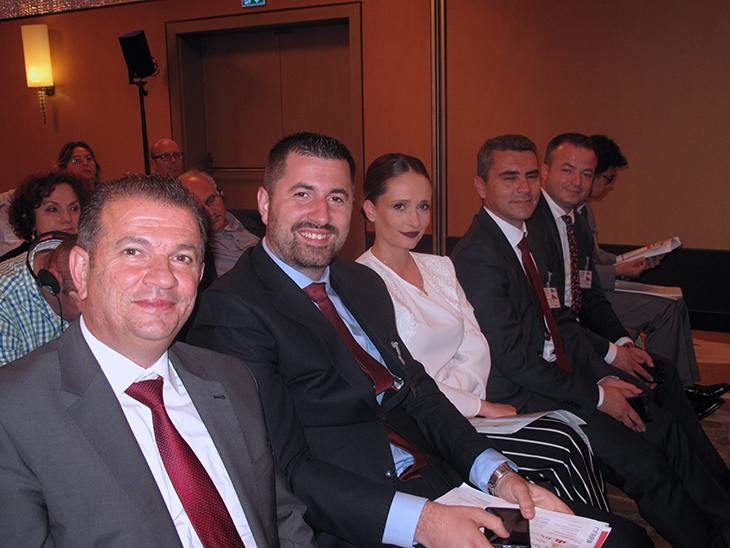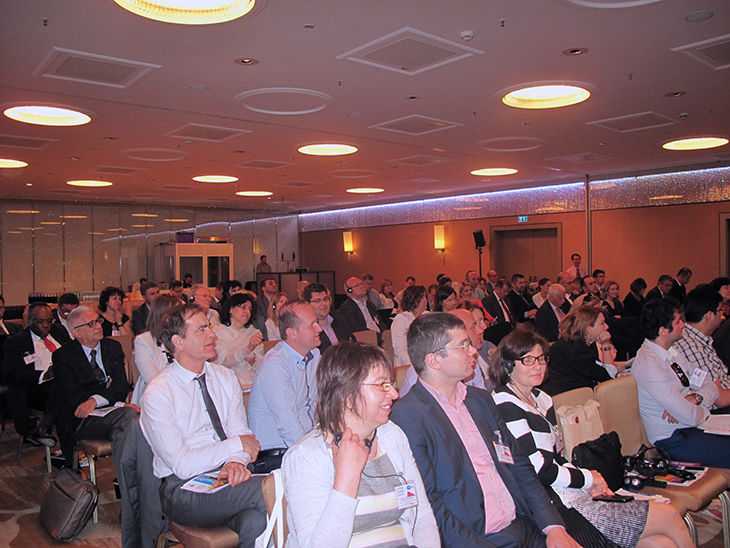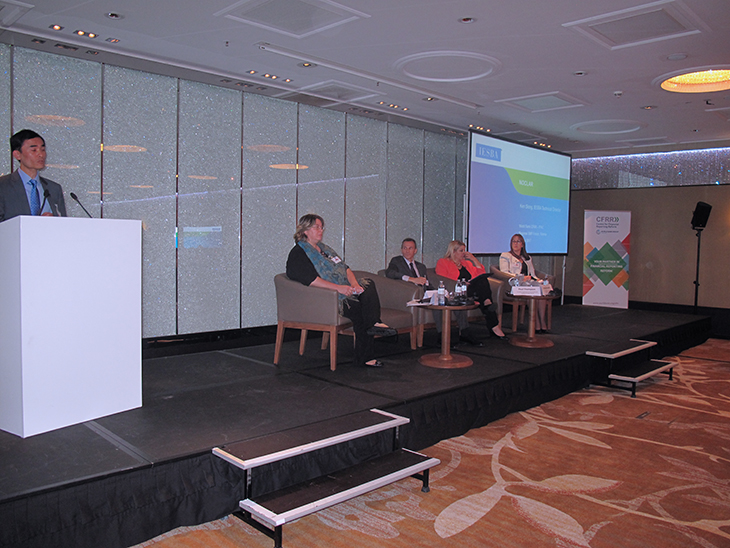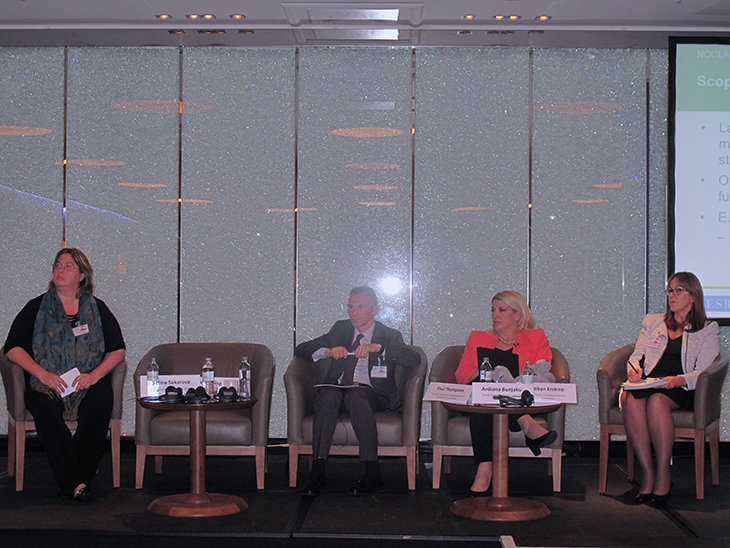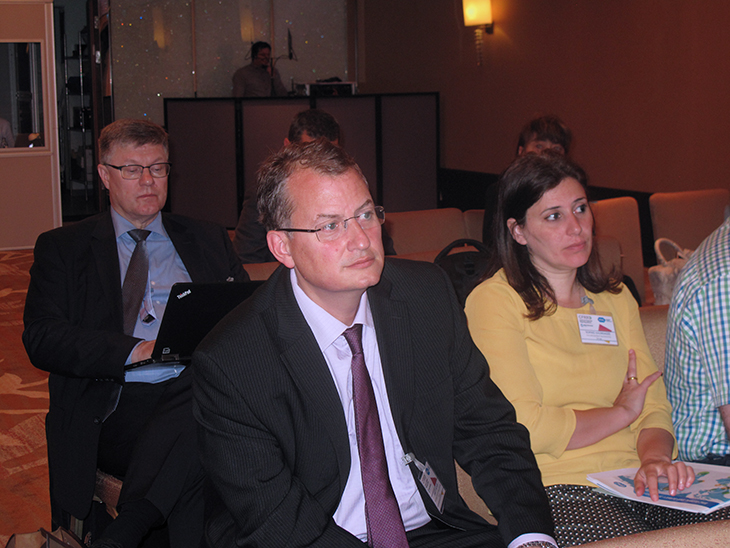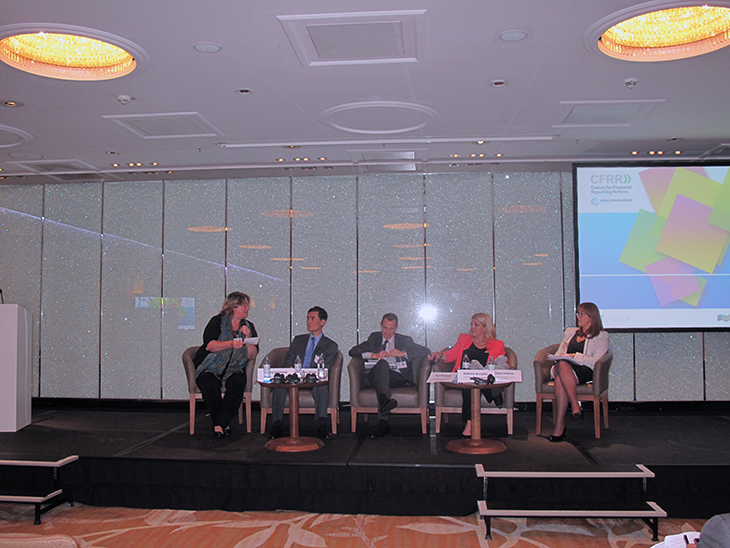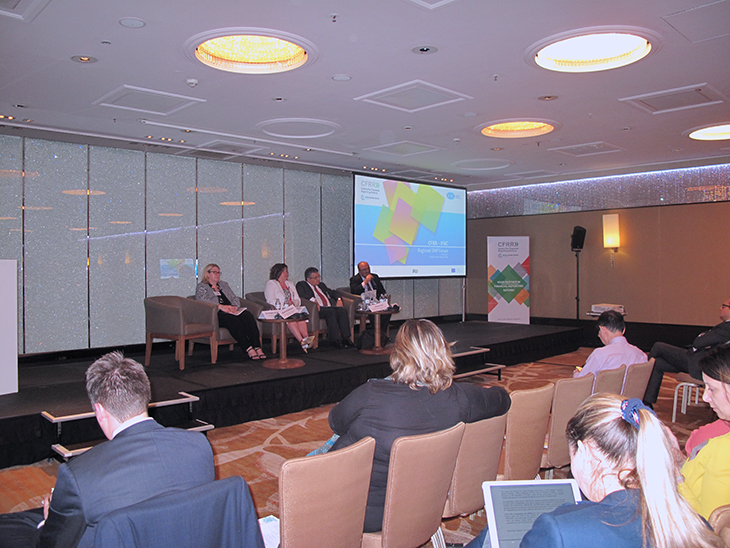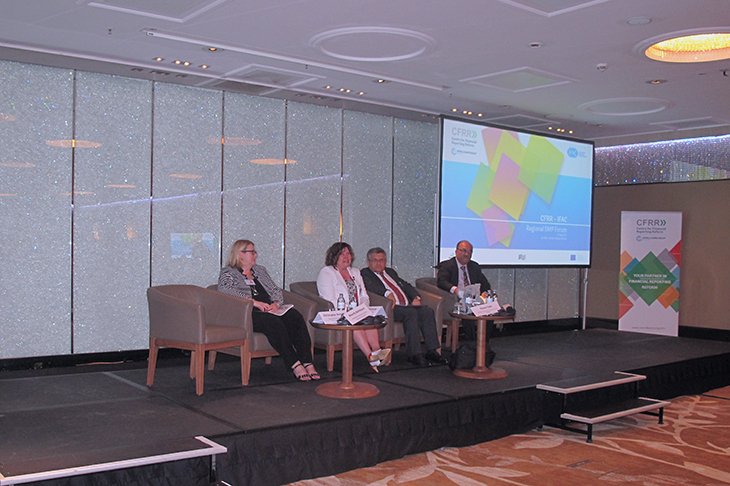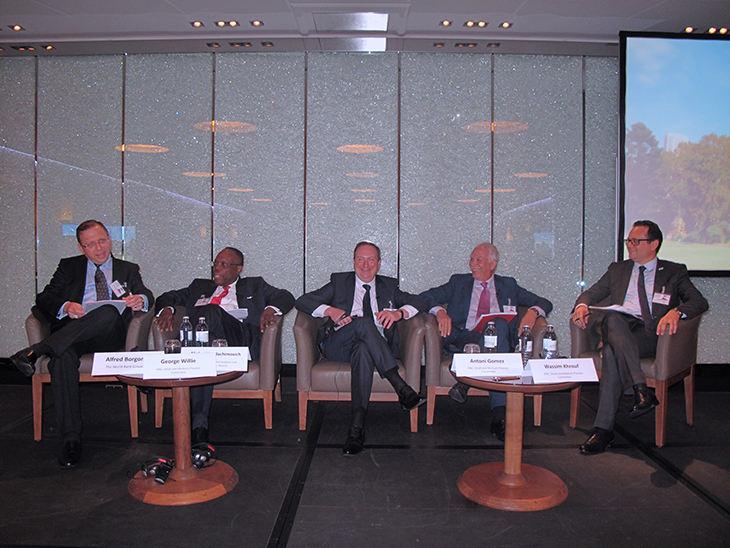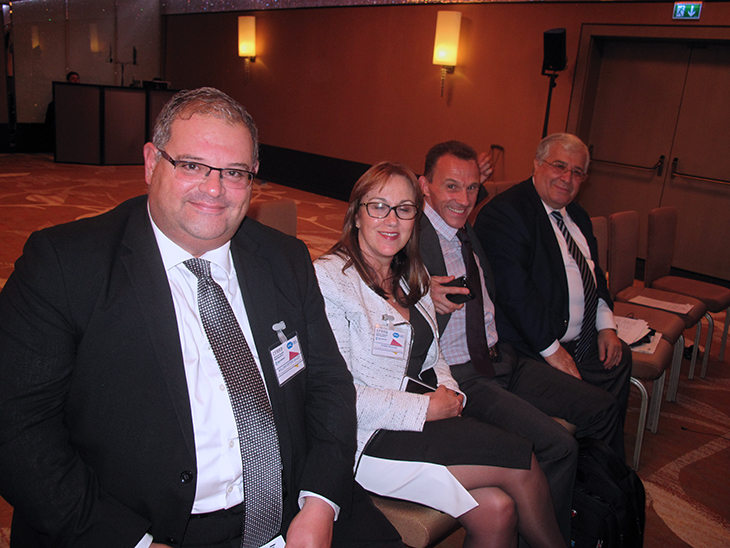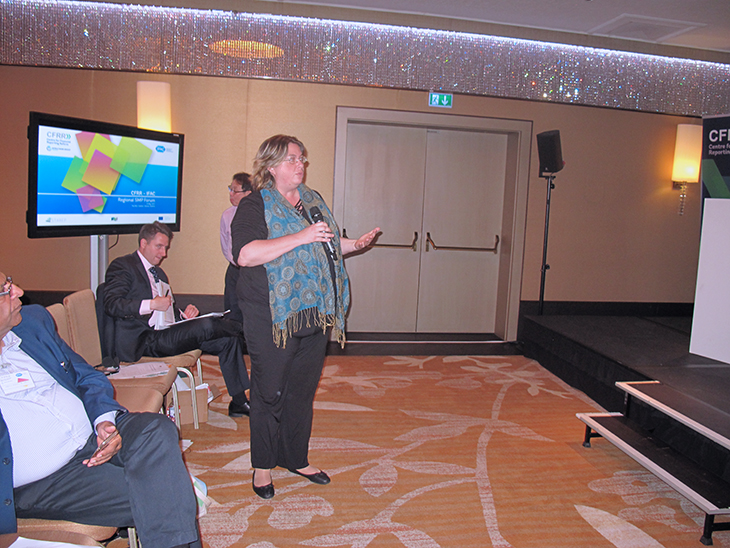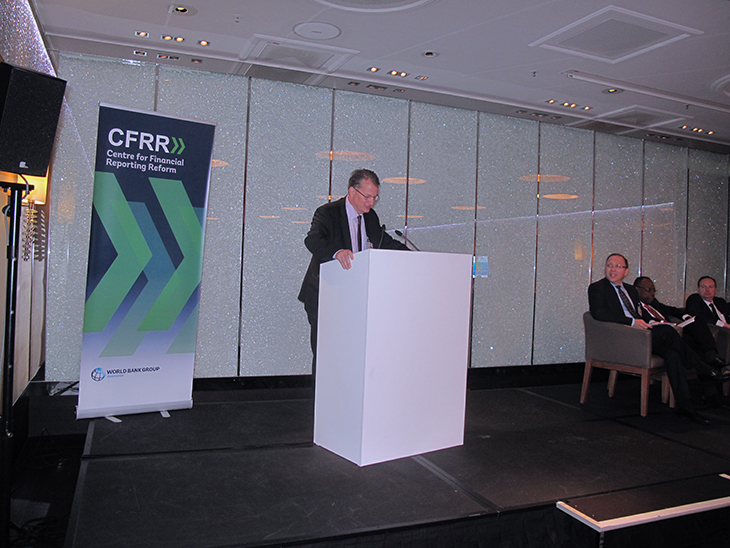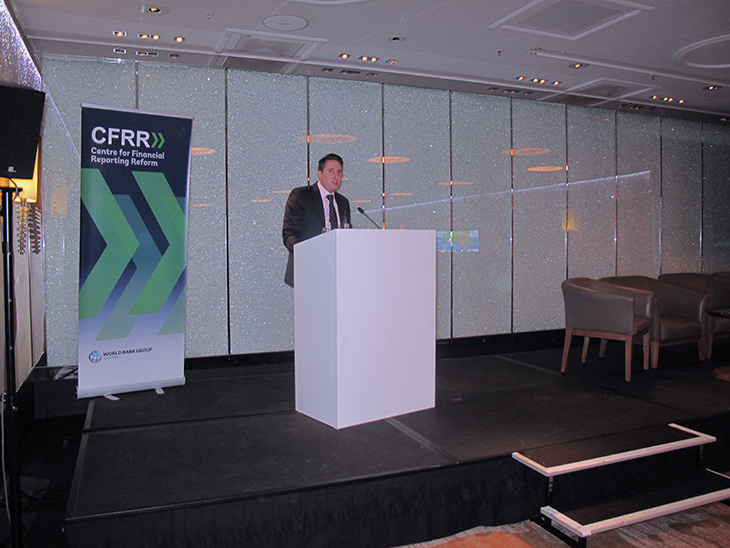Representatives of 20 regional and national Professional Accountancy Organizations (PAOs) met in Vienna on 31 May 2017, with experts from the World Bank’s Centre for Financial Reporting Reform (CFRR) and the International Federation of Accountants®(IFAC®), to discuss ways to address the challenges facing small and medium-sized practices (SMPs) and small and medium-sized entities (SMEs) as well as the opportunities available to them. “Regional and national Professional Accountancy Organizations play an important role in supporting the growth and development of the profession, and especially the segment of Small and Medium Sized Accountancy Practices (SMPs)” said Edward Olowo-Okere, Director for the Financial Accountability and Reporting Department in the Governance Global Practice as he welcomed participants from Europe and Central Asia alongside opening remarks speakers Ms. Rachel Grimes, IFAC President and Mr. Gunter Schall, Head of Private Sector and Development at the Austrian Development Agency.
The Forum was co-organized by the World Bank’s CFRR and IFAC and represented an excellent opportunity for experience sharing, interaction and networking between participants.
Raising the voice and visibility of SMPs Globally
Since 2011, the Global SMP Survey is considered as one of the largest studies of SMPs globally, and has helped to gain an understanding of the challenges and opportunities faced by SMPs and SMEs world-wide. Panel sessions explored the results of the 2016 IFAC Global SMP Survey that was open in 23 languages from October 1 to November 30, 2016 and received over 5,000 responses.
SMPs in Europe and globally face a number of challenges, among which attracting new clients, keeping up with new regulations and standards and experiencing fee pressures are consistently ranked among the top 3 challenges. When it comes to the challenges faced by their SME clients in Europe, these included Economic Uncertainty (66% rated as a high or very high challenge) with Rising Costs (rated at 59%) coming in next. Further, according to the survey although most SMP revenue is still generated from traditional sources, including compliance, audit and taxation, there is an increase and diversification of SMP services from non-traditional sources. For example, advisory and consulting as well as accounting, compilation and non-assurance/related services have consistently been identified as the first and second fastest growing source of SMP revenue globally.
Enlists from Accountancy Europe (formerly Federation of European Accountants) and the American Institute of CPAs shared perspectives and insights from Europe and USA and emphasized that understanding these trends, challenges and opportunities, provides valuable insight that helps practitioners and SMPs adapt to changes and tailor the various services and their practice models to meet the ever changing business needs of their SME clients.
Renewed emphasis on professional ethics
Recently there has been renewed focus and emphasis of professional ethics, especially following the newly issued IESBA standard “Responding to Non-Compliance with Laws and Regulations” (NOCLAR) that became effective on July 15, 2017. Panelists discussed this topic and emphasized the importance of professional ethics as a distinguishing feature of the profession.
In order to win and retain business, practitioners must act in line with the Code of Ethics so as to maintain the trust and confidence of their clients. The new IESBA standard aims to strengthen the role of the accounting profession in the global fight against non-compliance with laws and regulations (NOCLAR) in areas such as fraud, money laundering, bribery, corruption and violations of environmental laws and regulations. The standard provides a framework to guide professionals in deciding how to best act in the public interest when they become aware of NOCLAR.
The session also discussed the findings of the recent European Federation of Accountants and Auditors for SMEs (EFAA) survey focusing on the pressure experienced by professional accountants in business and practice, mainly from SMPs. In addition, ethical challenges facing SMPs in Kosovo were shared as well as how the Society of Certified Accountants and Auditors of Kosovo (SCAAK) is supporting their members to comply with the ethical requirements.
Efficiently Implementing International Standards in the context of SMEs
Following calls from SMPs globally to address issues of scalability of the International Standard on Auditing (ISA) to SME audits, the International Auditing and Assurance Standards Board (IAASB) have been exploring ways to address the needs of SMPs audits of SMEs. Although it is too early for a decision if a new standard for SME audits will be developed, some of the possible actions discussed by the IAASB during the panel session to address SMP needs include:
- Making the standards more “usable” with more examples and implementation guidance;
- Developing an electronic ISA Handbook making standards more easy to navigate and interactive;
- Considering how the proportionality and scalability framework can be developed and used when drafting new and revised standards; and
- IAASB is currently undertaking a number of consultations on other services (e.g., Emerging forms of External Reporting and Agreed upon Procedures) that are useful services for SMEs.
In addition to the activities of the IAASB, the IFAC’s SMP Committee has developed a number of resources and guides to assist auditors of SMEs to efficiently implement International Standards in the SME audits, including the Guide to Compilation Engagements, Guide to Review Engagements, Guide to Quality Control for Small- and Medium-Sized Practices (QC Guide) and Guide to Using International Standards on Auditing in the Audit of Small- and Medium-Sized Entities (ISA Guide).
The panel showcased a practical example from Albania: the Simplified Guide on SME Audits developed by the Institute of Authorized Chartered Auditors of Albania (IEKA) to meet the needs of SMP auditors in Albania when implementing ISA.
SMPs as Trusted Advisors to SMEs
Outsourcing, technological advancements, competition, SMEs’ shifting demands, the economic environment as well as regulatory changes are all having a rapid and significant impact on the accounting industry. All of these environmental change factors have increased the need for accountants to think more strategically about the way they operate. More recently, smaller accounting practices have started to brand and market themselves as professional service firms that provide quality advice and expertise outside the traditional accounting scope, which has the most impact for small businesses.
Panel discussions explored the topic further and discussed some of the important transformational changes that SMPs globally need to undertake in order to become the Trusted Advisor of their SME clients, such as specializing in non-audit services and moving away from traditional service focused practices; investing in new technologies (cloud computing, data analytics); talent management and developing both technical and soft skills (selling, negotiating, branding) as well as rethinking their pricing models applied and moving towards value pricing over time-based billing.
The accounting firms’ experience in ensuring growth of their practice in Belarus was presented and the development and growth outlook of the profession from the perspective of the Union of Certified Auditors and Accountants of Belarus was shared.
Closing Remarks
Closing the Forum – Ms. Monica Foerster, Chair, IFAC Small and Medium Practices Committee and Mr. Jarett Decker, CFRR Head expressed optimism for the future of the accountancy profession in Europe and Central Asia and globally. “Experience, Independence and Trust are three unique professional characteristics that distinguish accountants from other business advisors. As long as these distinguishing characteristics are maintained then accountants will have an important role to play in developing economies that ultimately lead to increased financial transparency and improved quality over financial reporting.” Mr. Jarett Decker concluded.
Disclaimer: This webpage was created and maintained with the financial support of the European Union. Its contents are the sole responsibility of CFRR and do not necessarily reflect the views of the European Union.
